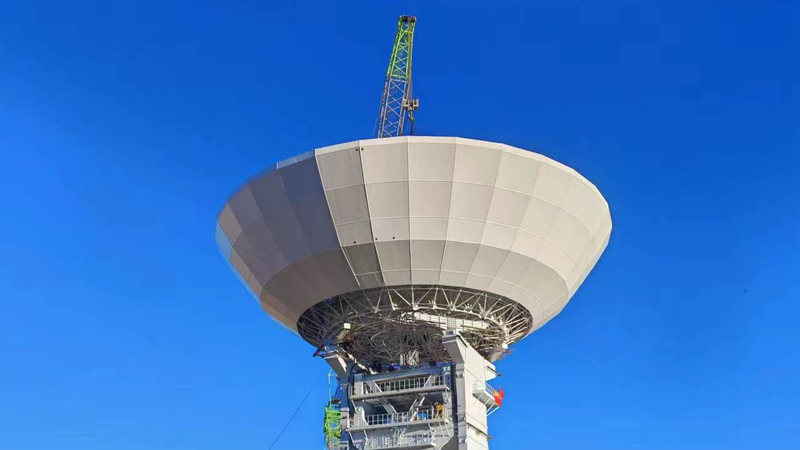Hey space enthusiasts! 🌌 China just took a giant leap into the cosmos by launching two massive 40-meter radio telescopes. One is nestled in the snowy Changbai Mountain area of Jilin Province in the northeast, and the other is perched high in Shigatse in the southwest Xizang Autonomous Region. These bad boys are set to help us unravel the mysteries of the universe! ✨
The Shanghai Astronomical Observatory (SHAO) of the Chinese Academy of Sciences (CAS) built these telescopes to beef up China's Very-Long-Baseline Interferometry (VLBI) network. With these new additions, the network now boasts a control center in Shanghai and six stations across the country. Pretty cool, right? 😎
So, what's VLBI anyway? It's like a super high-tech method where multiple telescopes work together to act as one gigantic 'virtual telescope' 🌐. This means clearer images and more precise positions of cosmic objects. With the new telescopes, the 'eye' of China's VLBI network just got bigger, stretching from about 3,200 kilometers to a whopping 3,800 kilometers!
Shen Zhiqiang, the head of SHAO, says this upgrade expands China's observable sky area by 25% and improves the clarity by 18% in the X-band. That's like switching from standard to high-definition TV! 📺🔭
These telescopes aren't just for show—they've got a mission! China's VLBI network has been a key player in lunar missions from Chang'e-1 to Chang'e-6 and even the Mars mission Tianwen-1. Now, with six stations, the network can track multiple celestial targets simultaneously. Imagine following several space adventures at once! 🚀🌕🪐
At the launch ceremony, Ding Chibiao, vice president of CAS, highlighted the importance of scientific innovation and the need to share these tech advancements. Meanwhile, Ye Shuhua, a respected academician, couldn't contain her excitement about the role these telescopes will play in future missions to explore asteroids, Mars, Jupiter, and beyond! 🌠
Building these telescopes wasn't a walk in the park. One is sitting at a chilly altitude of 4,100 meters, and the other braves winters dropping below minus 20 degrees Celsius. Talk about dedication! ❄️🏔️
With these new additions, China is stepping up its game in radio astronomy. Shen adds that they'll boost research in supermassive black holes, gravitational waves, and the dynamics of our galaxy. The universe just got a whole lot more interesting! 🌌✨
Reference(s):
China's new radio telescopes put into use for deep space exploration
cgtn.com




